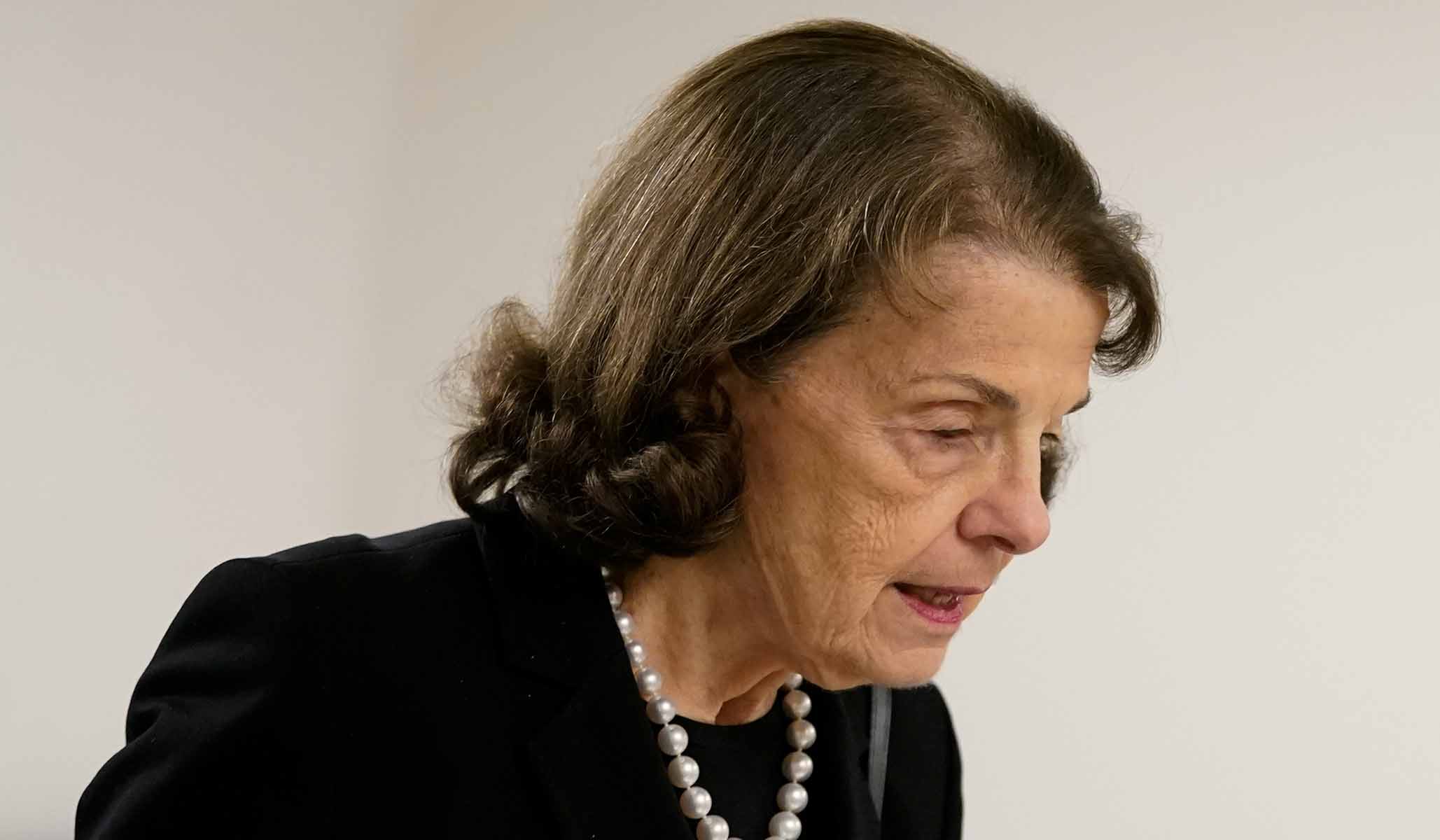
The return of Dianne Feinstein to the Senate after a three-month illness has intensified the debate over retirement from a political office because of old age.
In February, 89-year-old Sen. Dianne Feinstein fell ill with shingles, after which she suffered complications including encephalitis and facial paralysis.
The three-month absence of the Democratic senator and chair of the Senate Judiciary Subcommittee on Human Rights and the Law has made it difficult for Democrats to approve judicial nominations, which are significant to Democratic Party leaders and Joe Biden’s administration. Feinstein’s return meant that the Democrats regained a one-vote advantage on the committee.
In the Senate in a Wheelchair
Yet there is no rejoicing in Washington over her return. On the contrary, there has been increased pressure on her to retire and growing questions about her mental fitness, even from within Democratic circles.
After her lengthy absence, Feinstein entered the Capitol in a wheelchair with an oxygen machine, appearing even more fragile than before. Her staff does all it can to shield her from the curious media, which still manages to capture photos and videos of the California senator in Washington.
Feinstein only attends committee meetings, and in the larger forum, only when her vote is necessary. “In committee meetings, her public remarks have been limited, and she is always surrounded by staff. They also often form a human barrier between her and the press corps, with one staffer pushing her wheelchair while others shout at photographers to move out of the way,” writes the Los Angeles Times.
Feinstein is the oldest member of the Senate, having served there since 1992. She is also one of the America’s political pioneers, having paved the way for women in a world dominated by men. She was the first woman mayor of San Francisco, the first woman to represent California in the Senate, and the first female member of the Judiciary Committee. Furthermore, she has been a prominent voice in debates on gun control, an advocate for California, and a whistleblower on malpractice in intelligence agencies.
“You can’t tell the story of California—or American politics—without the iconic and trailblazing career of Senator Dianne Feinstein,” said Sen. Alex Padilla, who worked in Feinstein’s office in the 1990s.
Senior, But Distinguished
The senator is also one of a group of prominent and distinguished American politicians approaching or in their 80s. Leading this group is Biden, among others, who turned 80 in November, the oldest U.S. president in history, whose age has been the subject of intense debate and loudly expressed skepticism since he took office. It is very likely that in the coming primaries, he will face a not-much-younger 76-year-old Donald Trump.
The very influential former House speaker, Nancy Pelosi, is 83, Republican Sen. Mitch McConnell is 81, and his fellow party member Chuck Grassley is 89. Compared to them, Chuck Schumer, the 72-year-old Senate majority leader, appears young.
Should There Be a Limit?
There are no age or term restrictions in Washington politics, but in recent years, a growing number of aged politicians have attracted attention and provoked questions.
The average age in the Senate is 65.3 years, in Congress, 57.9, while the average age in the United States is 38. The age difference is huge and remarkable.
With age comes knowledge and vast experience, but so do questions about physical fitness and, above all, mental fitness. Some defend older politicians, saying that any age restrictions show a lack of respect and exclusion of the elderly; others seek to regulate age requirements. “The country would be better off if there were clearer ‘rules of the road’ for when a lawmaker should retire,” writes Jim Geraghty in National Review.
The debate over age and the pressure to resign followed Supreme Court Justice Ruth Bader Ginsburg till the end. She was a titan when it came to work and a role model for many, not only those in the judiciary. Despite health problems, she refused to retire during Democratic President Barack Obama’s term. When she died at the age of 87 in 2020, Trump appointed the third justice of his term, a conservative member of the Supreme Court, to replace her.
Painful Gap
Feinstein’s colleagues in Washington have been vocal in her defense, including Sen. Kirsten Gillibrand and Hillary Clinton, who has been a friend of the California senator for years. “Here is the dilemma for her: she got reelected, the people of California voted for her again, not very long ago. That was the voters’ decision to vote for her, and she has been a remarkable and very effective leader … the Republicans will not agree to add someone else to the Judiciary Committee if she retires. Because if we’re going to get judges confirmed, which is one of the most important continuing obligations that we have, then we cannot afford to have her seat vacant,” Clinton said during an interview at the Chicago Humanities Festival.
In the debate over what Sen. Feinstein should do, a University of California, Berkeley Institute of Governmental Studies poll found that more than half of the respondents in California – the State represented by Feinstein – believe she should resign for health reasons, particularly memory problems. This has been an open secret on Capitol Hill for years.
More radical Democrats in Washington and California also accuse her of becoming a centrist Democrat who does not understand the dynamics of the modern political scene.
If Sen. Feinstein decides to retire, California Gov. Gavin Newsom will have to nominate someone to replace her until the next election. Among the potential candidates are Republican attorney Eric Early and Democratic Reps. Katie Porter, Adam Schiff, and Barbara Lee.

Leave a Reply
You must be logged in to post a comment.